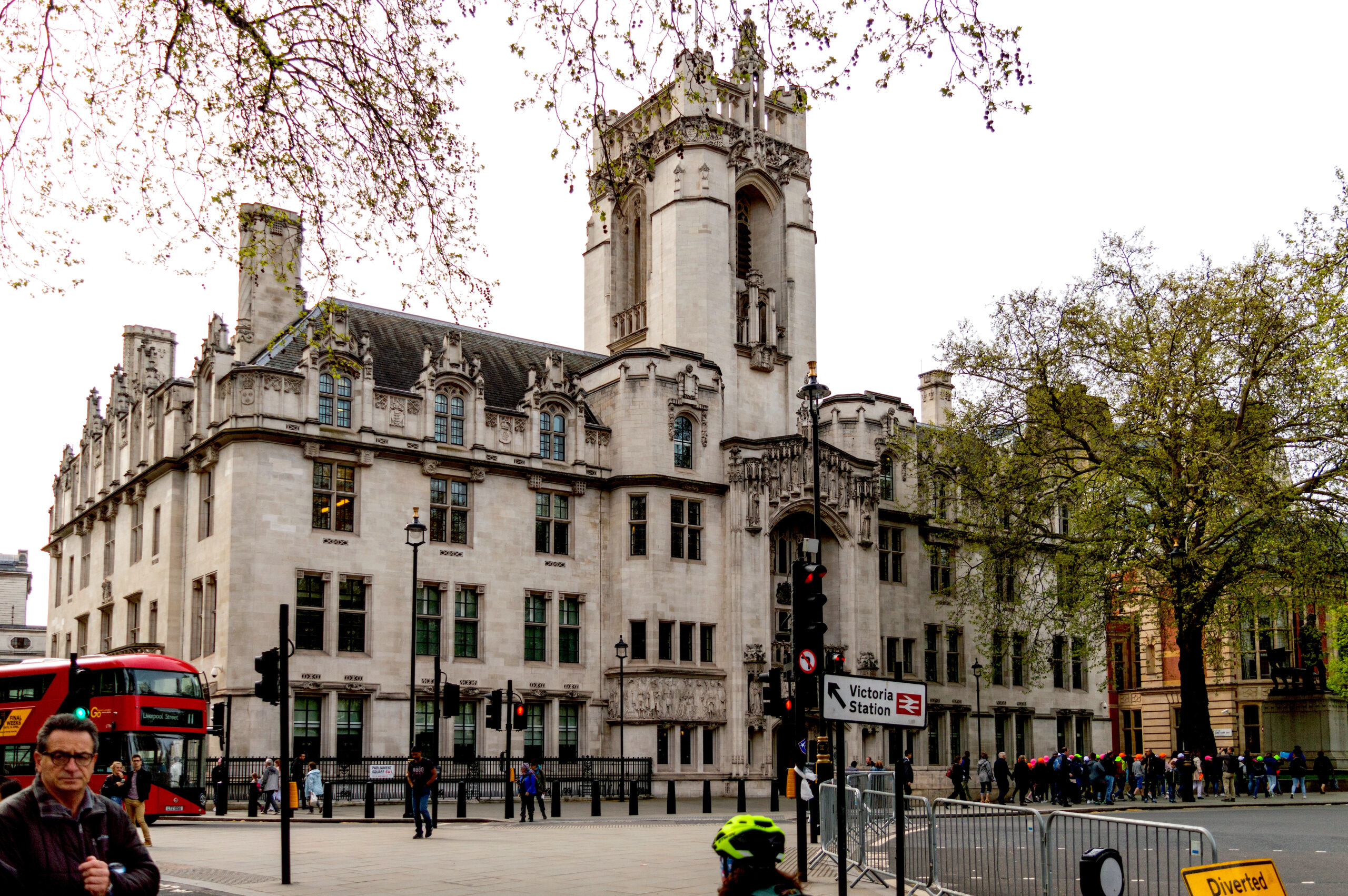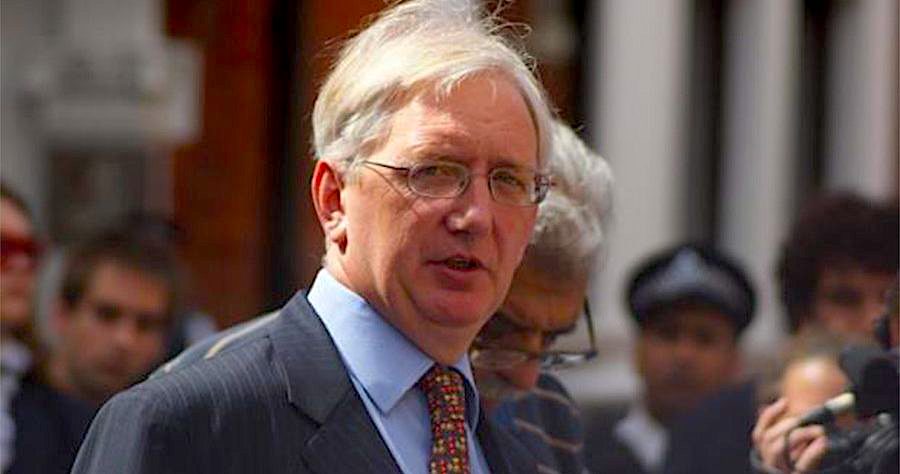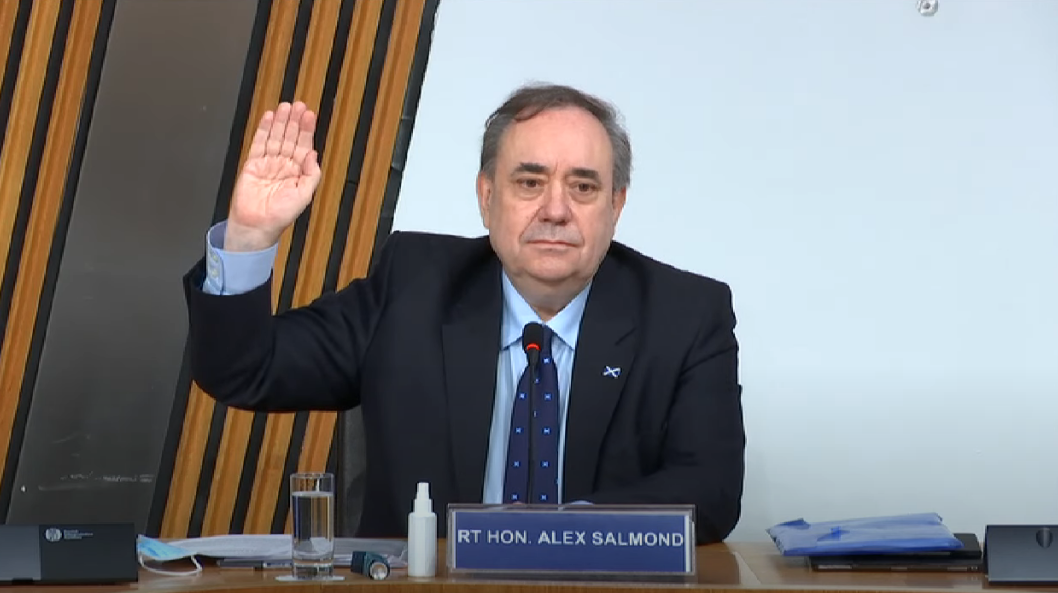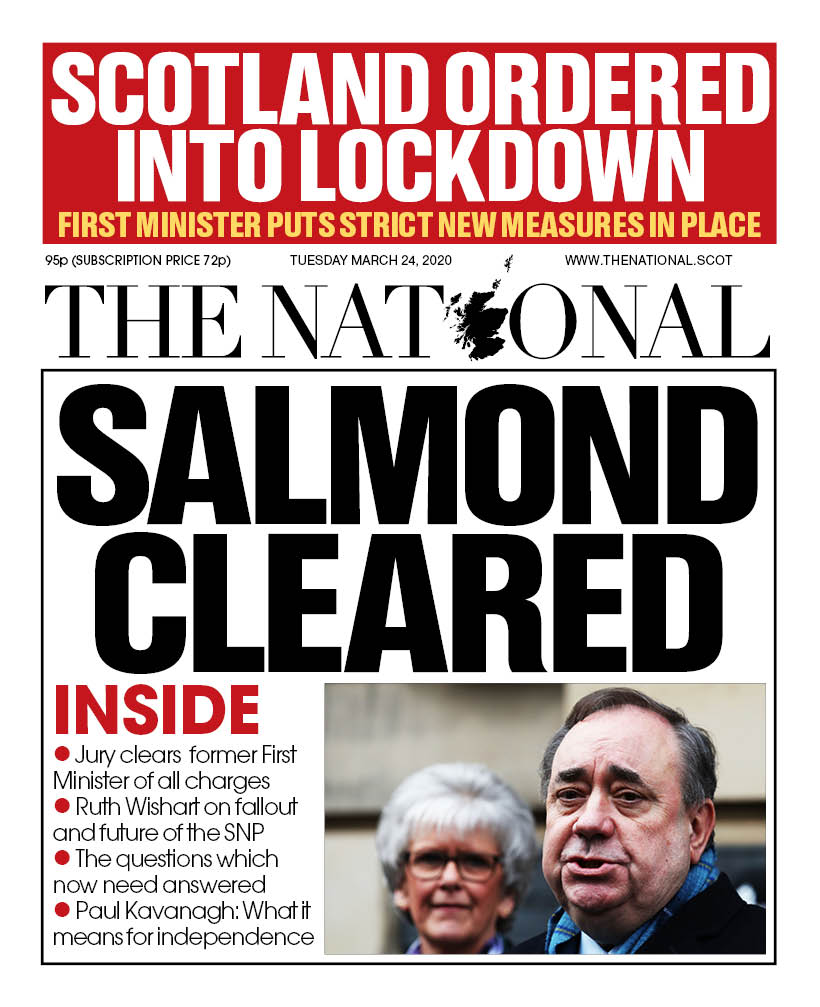Alexander Mercouris says the U.K. Supreme Court should grant the whistleblower and blogger permission to appeal since there are serious questions about journalism to consider.

Middlesex Guildhall in London, home of the Supreme Court of the U.K., in 2018. (Tristan Surtel, CC BY-SA 4.0, Wikimedia Commons)
By Alexander Mercouris
in London
Special to Consortium News
 The recent decision of the High Court of Judiciary in Edinburgh arguing that the journalist and whistleblower Craig Murray should not appeal his conviction and sentence for contempt of court to the United Kingdom Supreme Court was not unexpected.
The recent decision of the High Court of Judiciary in Edinburgh arguing that the journalist and whistleblower Craig Murray should not appeal his conviction and sentence for contempt of court to the United Kingdom Supreme Court was not unexpected.
Had the High Court agreed that Murray appeal to the Supreme Court it would have in effect admitted its decision to convict Murray, and the harsh sentence of eight months imprisonment it imposed on him, were arguably wrong. There was no realistic possibility it would do that.
Murray was convicted in March for his coverage of the sexual assault trial of former Scottish First Minister Alex Salmond (acquitted) in which the court found Murray disobeyed a court order to keep Salmond’s accusers anonymous.
Despite the High Court’s judgment, Murray retains the right to apply directly to the U.K. Supreme Court anyway for permission to appeal and I understand he’s done so.
In the British system, one first makes a request for permission to appeal to the Court whose judgment one wishes to appeal (in this case the Scottish High Court) because it gives that Court an opportunity to tell the appeal Court (in this case the U.K. Supreme Court) its opinion of the appeal.
Sometimes – though rarely – the Court will grant permission to appeal because there may be genuine uncertainty on the part of the Court about a point of contested law. In other cases – where the Court refuses permission to appeal – it gives its reasons why the appeal should not be granted, which the appeal Court is then able to consider.
In Murray’s case the reasons the High Court gave (that there are no arguable points of law arising) for not agreeing to an appeal to the Supreme Court were troubling and should lead to the Supreme Court rejecting them since it has given rise to serious questions.
(Despite its objections to a Supreme Court appeal, the Scottish High Court has extended Murray’s arrest warrant suspension until July 31 to give the Supreme Court more time to decide.)
Good news – the Court of Appeals in Edinburgh has further suspended the arrest warrant until 31 July to allow the Supreme Court in London more time to consider whether to hear my appeal.
— Craig Murray (@CraigMurrayOrg) July 2, 2021
The High Court’s Argument Against Appeal
The High Court’s judgment on June 8 refusing permission to appeal is short.
It treats the so-called objective test, which I discussed in my two previous letters about Murray’s case as established law. It insists that the Court applied this “objective test” to the facts of Murray’s case correctly.
It rejects claims that the “objective test” is arbitrary and vague and lacks sufficient certainty and clarity to make good faith compliance possible.
The Court was careful to say that Murray had provided sufficient information about the complainants’ identities to make it possible for the public at large, not just persons acquainted with the complainants, to identify them.
Therefore, even if the Court had misunderstood the “objective test,” and had described it too broadly, on the facts of the case the Court applied the “objective test” narrowly, and therefore correctly, so that Murray was still guilty of contempt of court, even if the Court had described the “objective test” wrongly, because Murray had breached the Court’s order, which protected the complainants’ identities by providing sufficient information for the public to identify them.
Moreover the Court said that in deciding whether or not Murray breached the order, the Court had correctly looked at articles he had written, which did not breach the order, and which were not part of the case against him, because those articles made it easier for the Court to understand his intentions, and also because these articles, when read together with the articles which did form part of the case against him, made it possible to the identify the complainants.

Craig Murray.
The Court rejected the suggestion that the way it applied the “objective test” infringed Murray’s right of free expression under Article 10 of the European Convention on Human Rights.
In doing so it admitted that Murray was entitled to express his belief that the case sexual assault case against Salmond was a concoction and the result of a plot. Merely expressing such a belief was not a contempt of court. However Murray had breached the order because he had expressed his belief in a way that led to the identification of the complainants.
The Court claimed that Murray’s sentence is proportionate because his actions had supposedly “struck at the heart of the administration of justice” so that a failure to punish him might put off complainants who might otherwise be minded to report a sexual offence.
In fact the Court went so far as to say that the sentence was needed in order ‘to [provide] comfort to those who may be considering reporting a sexual offence’.
Wrong Definition of The ‘Objective Test’

High Court in Edinburgh. (Andycatlincom, CC BY-SA 4.0, Wikimedia Commons)
It seems the Court may now recognise that its initial sweeping definition of the “objective test” was wrong.
The Court took this definition from the prosecution. According to this definition, publishing information about a person whose identity is protected by a court order would be a contempt of court, even if the only persons capable of identifying this person from this information were people who actually knew this person on an intimate basis, such as close friends and work colleagues.
Moreover it would still supposedly be a contempt of court even if the publisher did not know or intend that anyone would be able to identify the person protected from the information which was published, and even if there were in fact no evidence that anyone did in fact identify the person protected from the information which was published.
The Court seems now to accept that this definition, which it appeared to adopt during the trial, goes too far. Accordingly, it seems that the Court is now trying to justify its decision to convict Murray by trying to fit its decision into a different more narrow definition of the “objective test.”
This may explain why the Court is now looking at evidence which did not form part of the case against Murray .
Stepping Outside the Facts of the Case
Doing so however means that the Court is attempting to draw conclusions from evidence which was not tested during the trial because it did not form part of the original case. Murray was not examined on this evidence, just as he was not examined about his intentions.
Presumably, because the prosecution and the Court did not believe Murray’s intentions mattered as per the original wrong definition of the “objective test,” they did not think it necessary to examine him about them, so the question of his giving evidence on oath in the witness box about his intentions never arose.
The result is that the only evidence Murray has given as to his intentions is the evidence in his two affidavits. In those affidavits Murray denies that he had any intention of providing clues about the identities of the complainants. On the contrary he goes to great length to explain the painstaking steps he says he took to conceal the identities of the complainants.
The Court however has rejected Murray’s affidavit evidence, dismissing it in a cursory way. Instead, it asserts, partly on the basis of evidence, which did not form part of the case, that Murray did in fact intend to provide clues as to the identities of the complainants. He even supposedly “relished” the prospect of their identities being disclosed.
Absence of Evidence of Disclosure of Complainants’ Identities

Alex Salmond preparing to give evidence to the Committee on the Scottish Government Handling of Harassment Complaints, Feb. 26. (Scottish Parliament, Wikimedia Commons)
In reaching these conclusions the Court however faces the difficulty that there is in fact little evidence that the public at large did in fact identify any of the complainants as a result of anything that Murray wrote.
Inconveniently, such evidence as exists (essentially opinion poll evidence commissioned by Murray) suggests that to the extent that the public were able to identify the complainants from information which was published, it was not from information published by Murray, but rather from information which other media outlets published in Scotland, which were overwhelmingly sympathetic to the complainants and hostile to Salmond.
The Court attempts to get round this in two ways.
Firstly, it relies upon several tweets, some of them anonymous, made at the time of the publication of Murray’s articles, which criticise Murray, sometimes in very hostile terms, for publishing information which supposedly made it possible to identify the complainants.
Secondly, the Court appears to be making a distinction, which was not fully explained or developed in its judgment, between Murray and what the Court refers to as the “mainstream press.”
The Tweets
The tweets look to be threadbare evidence. Some of the tweets were tweeted anonymously, and none of the tweeters gave evidence at the trial.
Since none of the tweeters actually identified the complainants in the tweets (to have done so would have breached the order and would have been a contempt of court) there is no way of knowing whether any of them were in fact able to identify the complainants from anything that Murray had written about them.
Moreover, since all the tweeters come across as hostile to Murray, some of them extremely so, it seems likely that some of them were simply out to make trouble for him.
This “evidence” seems worthless.
‘Mainstream Press’

Reporters. (M M, Flickr, CC BY 2.0)
As for the distinction the Court sought to make between Murray and what the Court referred to as “mainstream press”, it is necessary to set out the Court’s words in full:
“The applicant [ie. Murray – AM] describes himself as ‘a journalist in new media.’ Whatever that may involve, it is relevant to distinguish his position from that of the mainstream press, which is regulated, and subject to codes of practice and ethics in a way in which those writing as the applicant does are not. To the extent that the submissions for the applicant make comparisons with other press contempts, and the role of mainstream journalists, this is a factor which should be recognised.”
These words purport to distinguish Murray — and and individuals who work like him — from the “mainstream press” on the basis that the “mainstream press” unlike Murray “is regulated, and subject to codes of practice and ethics,” which Murray and those who work like him are not.
No one who is familiar with the media landscape in Britain would recognise this picture.
This article is not the proper place to discuss the vexed issue of press and media regulation in Britain. Suffice to say that the big well-established media conglomerates which the Court presumably had in mind when it referred to the “mainstream press” have consistently resisted all attempts to regulate them. Whilst they do profess to a system of self-regulation, outside the media this is widely recognized as toothless.

Most recently, following The News International hacking scandal in 2011, they successfully lobbied against the system of media regulation proposed by the retired Court of Appeal Judge Lord Justice Leveson, which he recommended following a public inquiry set up to investigate the scandal and to look at the problem.
By contrast some independent bloggers and journalists — though not Murray — who do not belong to these big established media conglomerates, have voluntarily chosen to submit themselves to a system of regulation along the lines of what Leveson recommended. That means that they are actually regulated to a greater extent than the “mainstream press” is.
As for the “codes of practice and ethics” which the Court refers to, to the extent that they exist at all, anyone at all familiar with media practice in Britain, as exposed in The News International hacking scandal and subsequent scandals, knows that in the absence of any effective system of regulation they are ineffective.
The primary objection to the distinction between the “mainstream press” and someone like Murray, which the Court is trying to make, is however that it works against the impartial and equal application of the law and justice.
The words “… the submissions for the applicant make comparisons with other press contempts, and the role of mainstream journalists…” appear to concede that “mainstream journalists” have committed the same or similar contempts to those alleged against Murray. Yet they are not held to account in the same way. That implies that there is one class of persons — “mainstream journalists” — who are less bound by the law of contempt than other persons.
Not only is that problematic in itself, appearing to privilege one class of persons — “mainstream journalists” over other journalists, and other persons — but there is in fact no legal basis for it, with the Court citing no authority saying that there is.
Disproportionate Sentence
This is particularly disturbing because of what the Court says in justification of the extremely harsh eight months prison sentence it has imposed on Murray.
In response to what Murray’s lawyers have said about the disproportionate nature of this sentence, and of the way in which it is out of line with sentences handed down in other cases for seemingly more egregious contempts, the Court justified the sentence by saying that it was needed in order to give “comfort” to would be complainants who might otherwise be deterred from reporting sexual assault crimes.
That sort of rationale for imposing a harsh prison sentence — that it is needed in order to encourage complainants, as opposed to punishing criminals and deterring crime — already looks odd. However it becomes more disturbing still when someone like Murray is subjected to it, whilst a “mainstream journalist” apparently is not.
Misreporting by the “mainstream press,” however that is defined, because of its enormous scale, is in fact far more likely to result in the public identification of a protected person than reporting in a limited circulation blog like Murray’s. If the opinion poll evidence provided by Murray’s lawyers to the Court is true, then that is what actually happened in Salmond’s case. However it is Murray’s alleged misreporting that deserves to be punished by a harsh prison sentence, and not that of the “mainstream press.”
Not only does this seem wrong, and frankly unjust, but it seems to undercut the rationale the Court gave for its sentence.
Apparently complainants in sexual assault cases need the “comfort” of prison sentences imposed on individuals who publish information about protected persons in limited circulation blogs in order to encourage them to come forward and report crimes. However they will not get this “comfort” if the individuals who publish this information are “mainstream journalists” publishing in the mass circulation “mainstream press.”
This makes no sense. Presumably it is not what the Court intends. However it is the impression that its words give.
The Significance of the Case

(Wes Dyer, @wesd440, OpenClipArt)
Murray himself has spoken in a deprecating way about his case, discounting its importance. This is to underestimate its significance.
The Court appears to have retreated from the extreme interpretation of the “objective test,” which the prosecution held at the trial, and which I discussed in my previous letters. That interpretation was so sweeping that it placed in jeopardy the entire ability to report on a case where an order to protect the identity of a person has been made. That has serious implications for the rights of the defendant and for the fair administration of justice.
[LETTER FROM LONDON: The Troubling Sentencing of Craig Murray
However, though the Court appears to have retreated from this extreme interpretation, it has not actually rejected it. There remains a possibility that it could be revived.
Even the more narrow interpretation of the “objective test” the Court now seems to be applying is however filled with pitfalls.
The Court acknowledges that it would not be a contempt of court to say that a case against a defendant is concocted, as Murray said happened in the Salmond case. However the way the Court is now applying the “objective test” makes it difficult to see how in a case like Salmond’s someone like Murray would be able to report any of the facts upon which he based such a belief. Doing so would risk a prosecution for contempt of court on the grounds that it would cause the release of information which might lead the public to identify the complainants.
The effect on the reporting of a case like Salmond’s would be obvious and chilling.
The Court has compounded this problem by the distinction it has attempted to make between someone like Murray and what it calls “the mainstream press.”
At best this looks like special pleading, an attempt to excuse the failure to prosecute mainstream journalists who have committed essentially the same contempts of which Murray is accused.
At worst it presages a situation where the only authorised journalists able to report sensitive cases like Salmond’s are journalists whom the Court considers “mainstream.”
Experience shows that the coverage of court cases provided by such journalists is anything but fair or impartial. Limiting reporting of sensitive cases to such journalists would make reporting of the sort that Murray himself provided during Julian Assange’s case impossible.
Murray, who I consider a friend, is apparently the first person to be convicted, not just in Britain but perhaps in the whole world, of the “jigsaw” identification of complainants in a criminal case. That fact alone makes his case special and justifies its consideration by the Supreme Court.
Beyond that, it is clear that there are major uncertainties about the “objective test” and how it is being applied, which it is essential that the Supreme Court settle and clarify. A failure to do so would risk not just an injustice being done to Murray himself, but also leaving the law of contempt to take unwanted directions, with potentially serious consequences for the rights of defendants and for the fair administration of justice.
In addition, there are particular problems specific to the Court’s conduct of Murray’s case, which appear to justify intervention by the Supreme Court. The way the Court stepped beyond the facts upon which he was convicted in order to form opinions about him, doing so moreover without actually hearing from him, is troubling, as is the decision to impose a frankly disproportionate prison sentence upon him not in order to punish him but in order to give ‘comfort’ and encouragement to others.
If the Supreme Court refuses to consider this appeal, or rejects the appeal, despite the serious issues to which this case has given rise, then Murray is justified in taking his case to the European Court of Human Rights.
Alexander Mercouris is a legal analyst, political commentator and editor of The Duran.
The views expressed are solely those of the author and may or may not reflect those of Consortium News.

A great article, covering a lot of detail about the farcical case that the establishment are bringing.
I’ve felt from the start that this was a dangerous precedent if it were to stand , as the basic human rights of people being able to defend themselves in a fair and just way would be forever eroded if not lost. It would appear that common law justice would become a pick and mix justice at the whims of the legal system.
Bravo
Thankyou Alexander for an excellent and detailed analysis, specifically the importance of legal judgement on the unique in law ”jig-saw’ analysis perplexity.
Brilliant article – puts nonsense under the microscope to reveal it’s true nature…
It’s obvious that a coterie of UK high court judicial peers have migrated down a rabbit hole where in Alice in Wonderland apparel and style pronounce pithy illogical, spiteful judgements on miscreants whom they find offensive. How rotten is the State of Scotland and England?
Excellent detailed analysis of the legality of the sentencing of Craig Murray.
I am a lay person and can only say that my view of this case is that the law is clearly attempting to stitch Craig Murray up with a very weak to non existent real case. As a taxpayer I am abhorred that my taxes should be used in this way and also deeply ashamed that a government I have supported all my life should attempt to quieten Craig Murray who is an outstanding journalist and extremely principled individual supporting other individuals who he has found to be being evilly mistreated by American and U.K. Governments in British Courts. Craig Murray is a brave individual who is the type of individual I believe has the qualities I would like to see as a leader in government not corruptly thrown in jail on a concocted judgement.
Murray, Salmond and Assange could do so much more leading government rather than being illegally prosecuted by them on a bunch of twisted lies.
Well said x
Yes, an excellent analysis. One thing I do not understand is the absence of consequences for the ‘witnesses’ who perjured themselves at the Alex Salmond trial. As Craig reported, the jury decided they were lying. Is there no consequence for their perjury?
I’d like to know the answer to that too, as believing the lies would have resulted in such a great injustice – why are there no consequences?
Wonderful and clear – and much needed – analysis. Putting this side by side with the farce of Julian Assange’s extradition trial, leads one to really question the quality of the judiciary in the British Isles. Which lead me to ask if Mr. Mercouris would comment on what impact the recently recanted key evidence in the Julian Assange indictment in the U.S. might have on the extradition case in London. While I suppose the scene shifts to the U.S court and the Department of Justice since the indictment is the whole basis for the attempt at extradition, it would still be interesting to know if anything can be done contemporaneously in London. Wouldn’t it be nice if at least we could get Julian released from Belmarsh!
The scene is very much in London where the High Court is weighing whether to accept the U.S. appeal against the Jan. 4 judgement not to extradite Assange on medical grounds and on the harsh conditions of US prisons.
I can see the compensation for Assange unjustified imprisonment going through the roof!
Thank goodness for your terrific work! This case reads like a chess game. Following every bit, it feels like the independent press has ehics, and a deep sense of justice. And that these old-power, traditional courts have given over the reading of a moral compass for even greater excess of power. Could it be they are all linked in to a corrupted government network!? A worldwide scandal brewing? The criminal elements seem not the ones being prosecuted in these two cases. Neither in Julian’s or Craig’s.
An honest, comprehensive and insightful review of the disgraceful treatment meted out to Craig Murray by the politically driven Edinburgh High Court, as punishment for Craig’s coverage of the equally disgraceful treatment of Alex Salmond, both pre and post trial. It is astonishing that today the not guilty verdict in Salmond’s case is ignored, and the FM and her acolytes continue to behave as if he had been found guilty…an excellent piece by Alexander Mercouris.
I totally agree…
To “lay bare” to candidly reveal facts and ideas (of a bad judicial decisions) Like Adele, lyrics “I’ll lay your shit bare”, a way of saying I will make known your wrongdoings.
Well said Alexander Mercouris.
This was a set up from the very beginning from The Alex Salmond sex abuse to Craig Murray, it is all a political game but with peoples life’s we have seen this with the JUDICIARY in SCOTLAND and in ENGLAND, but if we are talking about Justice why was the Ladies in question not arrested for lying under oath ,why are they being PROTECTED not PROSECUTED is this the kind of JUSTICE WE NOW HAVE IN BRITAIN POLITICAL JUSTICE NOT BLIND JUSTICE and we are seeing this time and time again ,
An excellent and detailed analysis